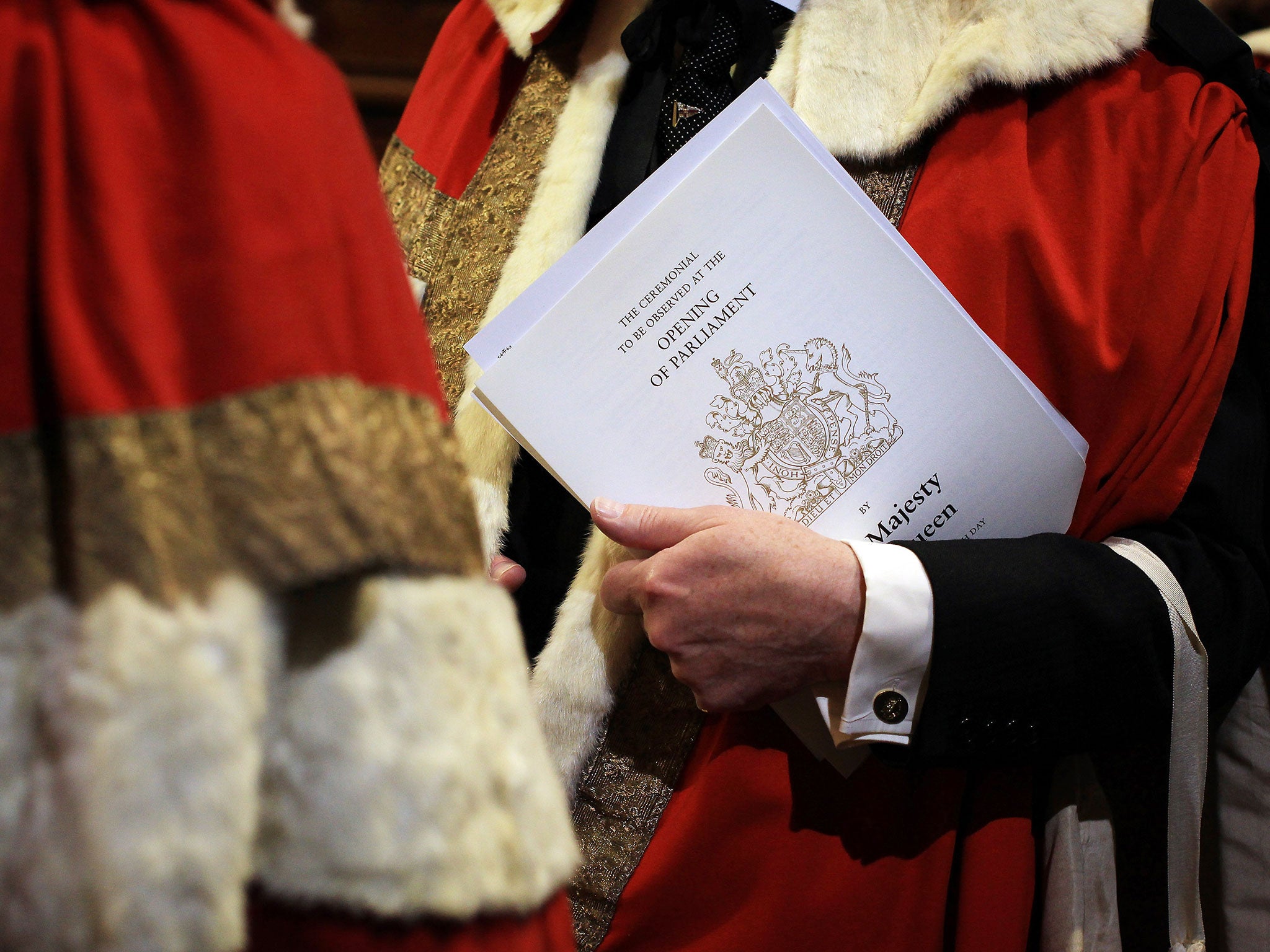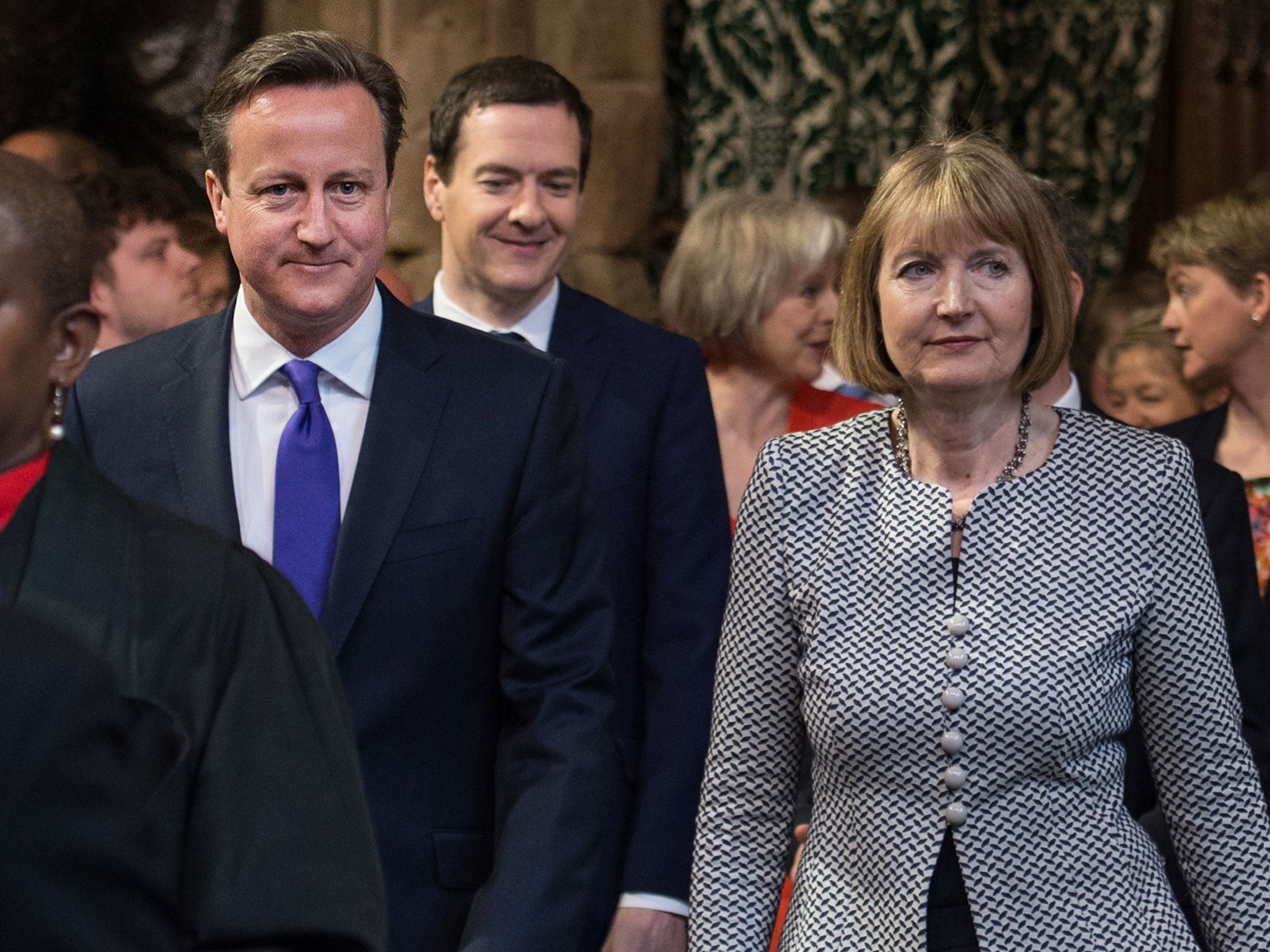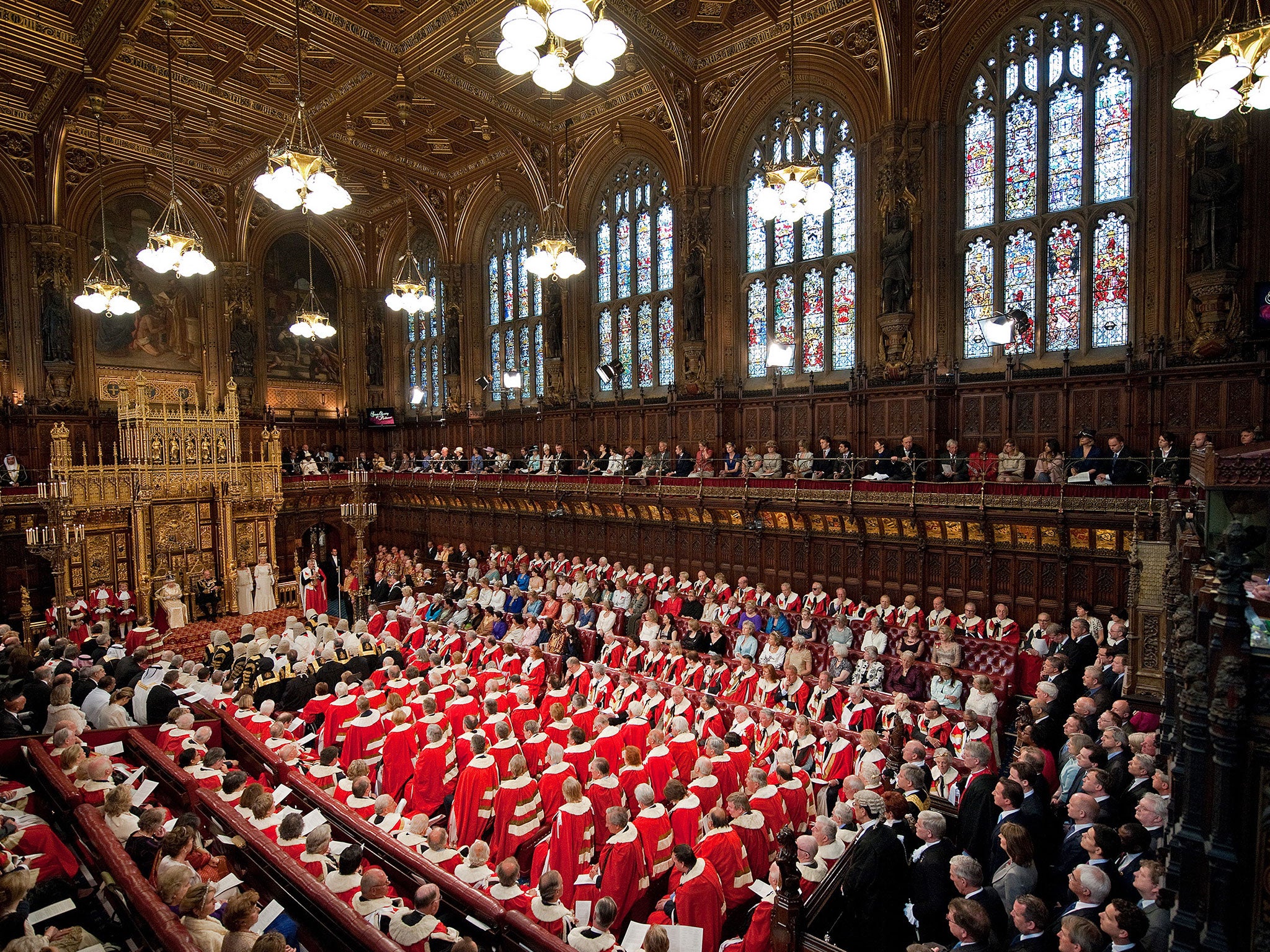‘No-vote peers’ rack up £360k in House of Lords fees and expenses
Peers who failed to vote even once claimed more than £100,000 in the last session of parliament alone

Your support helps us to tell the story
From reproductive rights to climate change to Big Tech, The Independent is on the ground when the story is developing. Whether it's investigating the financials of Elon Musk's pro-Trump PAC or producing our latest documentary, 'The A Word', which shines a light on the American women fighting for reproductive rights, we know how important it is to parse out the facts from the messaging.
At such a critical moment in US history, we need reporters on the ground. Your donation allows us to keep sending journalists to speak to both sides of the story.
The Independent is trusted by Americans across the entire political spectrum. And unlike many other quality news outlets, we choose not to lock Americans out of our reporting and analysis with paywalls. We believe quality journalism should be available to everyone, paid for by those who can afford it.
Your support makes all the difference.Peers claimed £360,000 in attendance fees and expenses over the past five years despite failing to take part in any House of Lords votes, new research has found.
A group of 62 peers racked up the huge bill in years they failed to vote even once, a report by the Electoral Reform Society (ERS) released claims.
In the last parliamentary session alone, more than £100,000 was claimed by peers who did not vote at all, the report said.
The 10 most expensive ‘silent’ peers account for £236,000 of the expenditure, the campaign group found.
The ERS warned the House of Lords, which costs £93.1million in 2013-14, was 'growing out of control' and 'shockingly out of date and unrepresentative'.
Peers do not have a salary but they can claim £300 for each sitting day they attend the House, as well as limited travel expenses.

Calls for reform of the House of Lords grew louder after its former deputy speaker, Lord Sewel resigned after he was caught on camera snorting cocaine with prostitutes last month.
The Prime Minister has said the House of Lords should reflect the House of Commons, but he would need to almost double the number of peers from 782 to 1,545 to match their vote share.
And the Lords, which is already the second largest chamber in the world, after China’s, would need to balloon to 8,663 members to exactly match the Commons’ seat share.
The ERS said David Cameron’s intention to appoint 50 more peers over the summer would cost at least £1.3 million a year in expenses and allowances.

The ERS also questioned the independence of peers and the level of outside expertise they bring to the parliamentary process – both common arguments for retaining the Lords.
It revealed 34 per cent of peers used to work in politics, the vast majority of them as MPs or councillors, compared to just 1 per cent in policing, transport or manual and skills trades.
Only one peer, former linen mill worker Baroness Blood, has a manual trade as their former profession – compared to two former royal household staff.

Peers who take a political whip vote with their party almost 100 per cent of the time and independent ‘crossbench’ members have much worse voting record. Almost half of crossbench peers voted in 10 or fewer votes during the last session.
Darren Hughes, deputy chief executive of the ERS, said: "This is not a chamber of experts, it's a chamber of professional politicians.
“Our House of Lords looks nothing like the public whose decisions it impacts. Almost half live in London or the South East, while there are just two peers under the age of 40. This is a shockingly out of date and unrepresentative institution.
"The Prime Minister said he 'regrets' not reforming the second House in the last parliament.
“It's time for him to act - and finally fix our broken upper chamber."
No-one from the Cabinet Office was available for comment.
Join our commenting forum
Join thought-provoking conversations, follow other Independent readers and see their replies
Comments